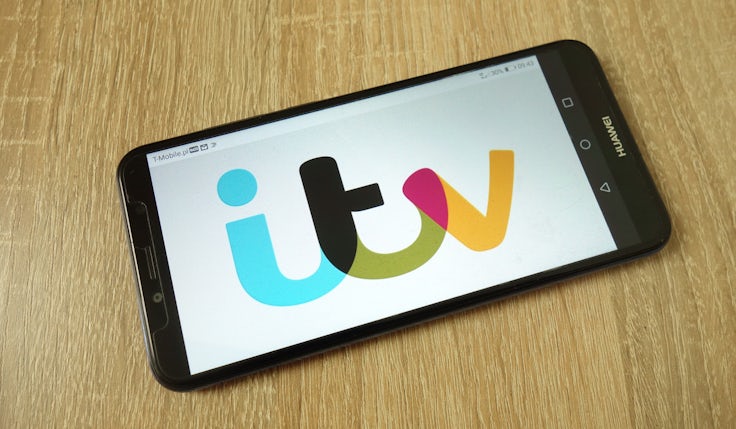Ritson: Differentiation is not about uniqueness
Relative differentiation in conjunction with distinctiveness is the best of both worlds, argues Mark Ritson, who believes the two shouldn’t be in competition with each other.
Differentiation doesn’t need to be in competition with distinctiveness claimed Mark Ritson during his latest Mini MBA webinar.
For the seminar, entitled Defending Differentiation, our Marketing Week columnist put forward the case that marketers have swayed too far away from differentiation in search of distinctiveness when they should be looking to achieve both.
Ritson first cleared up any confusion that differentiation and distinctiveness are in any way the same thing. He claimed they are very “different” and that although they may have similar definitions in a dictionary that was no way to build a marketing strategy.
He then went on to discuss the problems differentiation has suffered in the past, being linked with an obsession to be “unique” and how overstated its importance became in some quarters, such as in Jack Trout’s book Differentiate or Die. Ritson noted that: “Finding something unique is almost impossible and when you do find it then it’s replicable in one way or another relatively quickly.”
In the battle between salience and differentiation, Bothism wins
He claimed we “lost the plot” 25 years ago with a focus on far too many “esoteric” theories associated with differentiation, like archetypes and confused positioning, as well as purpose.
Instead, Ritson proposed a more measured form of “relative differentiation” where the goal is not to be unique, but instead have “more” of something than other brands do within the category. Marketers should choose to prioritise “attributes and associations that matter to their target consumers” which will prove enough to influence purchase decisions, he said. He accepted this was a more “diluted” version of differentiation but more achievable. “Differentiation is not about uniqueness, it’s about difference,” he added.
But in recent years, he claims, marketers have gone too far the other way and overcorrected to a point where differentiation was side-lined, almost completely in favour of distinctiveness. He pointed to Byron Sharp’s How Brands Grow and the work of the Ehrenberg-Bass Institute, which suggest differentiation is a past way of thinking and distinctiveness is the future.
Ritson believes this course correction was akin to “jumping out of the frying pan and into the fire” in that it is still over-focused and leaves marketers in a poor place.
He then went on to lay out his case for what the perfect balance between the two should look like. He started with differentiation and said it came down to strategically getting your positioning right and tactically executing effectively. Marketers should focus on “one positioning concept”, he said, it doesn’t matter what it is but make sure that it is limited because the more concepts you add, “the more you dilute your chance to stand for anything and gain relative differentiation”.
Ritson believes that even with one positioning concept, it’s important not to end up with 25 attributes to showcase it. Be careful, be choiceful, he said, take advantage of category entry points and make use of the 3Cs framework. And when you are satisfied with your position, track it over time with data.
Distinctiveness doesn’t need to come at the cost of differentiationWhen it comes to execution, Ritson believes brands need to say less. Don’t try to have too many attributes decaying or over-populating your message. Instead say less more often and invest in media, he advised. “If you put excess share of voice in two or three attributes and you say it more often than the competition, you will achieve relative differentiation,” said Ritson.
But, most critically, he believes you must say your message with distinctiveness because the two complement each other. Both are always present, he believes, and while they won’t always necessarily be equal and you may choose to focus on one over the other depending on your category, they should work hand-in-hand.
Marketers once overstated differentiation, concluded Ritson, then distinctiveness. What marketers should do is not choose one or the other – but embrace the generosity of both and have them work together.
A different perspective
Jenni Romaniuk, research professor at the Ehrenberg-Bass Institute, was quick to offer a differing perspective on LinkedIn after watching the seminar.
While she said she agreed with 60% of what Ritson said, she believes 20% was criticising her colleague Sharp on “cherry-picked” examples that don’t reflect the full picture of How Brands Grow. The final 20% came down to three key areas of genuine difference that she distilled into empirical tests.
“Differentiation is about building a relative difference so being better or more well known for something,” Romaniuk said. “[Ritson] did back away a bit when someone asked if this was superiority, this sounds like what I refer to as a mental advantage. The claim was you need to have a large mental advantage on something important to buyers to succeed.”
Growth Hacks: Ella’s Kitchen on why differentiation is keyShe continued: “You should only pick one attribute to promote, but his point was a narrow memory network of brand associations is better than a wider memory network of brand associations.
“This focus should persist over time, a ‘picking winner’ mentality – you pick something good and stick with it over time,” added Romaniuk. “This is what allows you to keep being well known for something more than competitors and for this differentiation benefit to persist over time (this is the Volvo=Safety model).”
Romaniuk said Ehrenberg-Bass will be sharing data on those first two points soon and that point three is something it is working on.
Mark Ritson teaches about differentiation and distinctiveness in the Mini MBA in Brand Management. The next course starts in September. Click here for more information.






